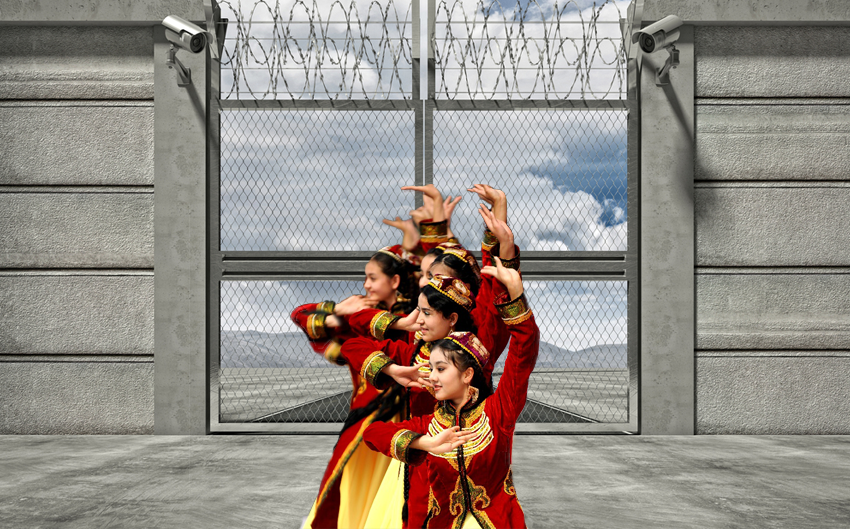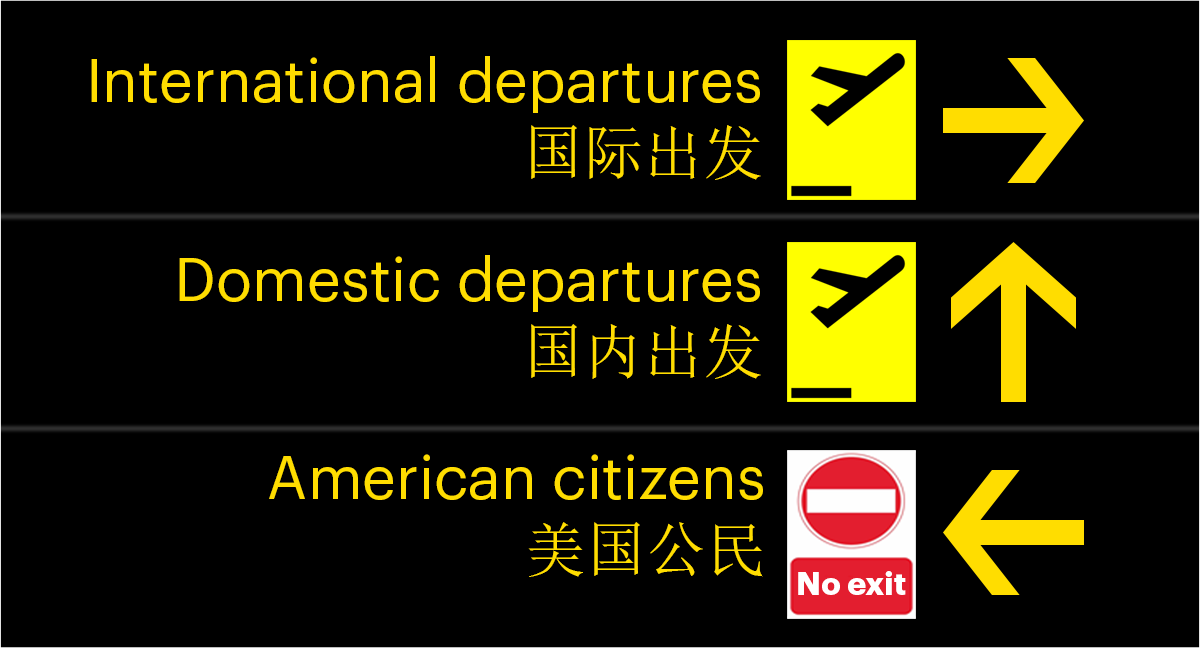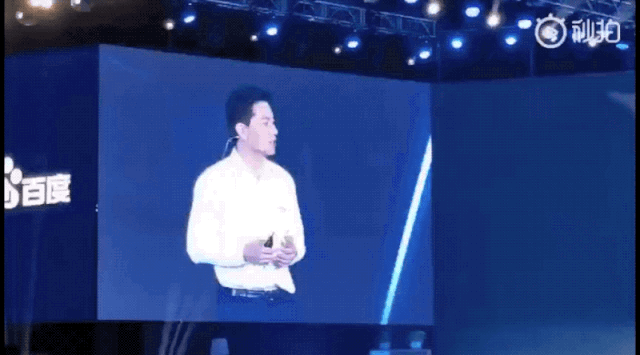Weekly Briefing: U.S. citizens trapped in China; ‘happy lives’ in concentration camps; Château Lafite made in China


Hello, readers! The China Project Weekly Briefing is our newest feature, detailing the most important China news from the past week. It also comes in the form of a newsletter — sign up using the box at the top of our homepage.
~
One unfortunate feature of the growing tension between China and the U.S. is a pattern of prejudicial and inflammatory statements from public figures in the United States and other signs of official targeting of ethnically Chinese people, rather than the Chinese government. So we’ve launched what we’re calling a Sinophobia Tracker to keep track of this worrying trend.
To learn more about why we launched a Sinophobia Tracker, and read about the difference between legitimate and overblown concerns about Chinese spying in the U.S., see this piece by our editor-in-chief, Jeremy Goldkorn: The new Yellow Peril?
We have also published an inside account of one instance of government targeting of Chinese scientists in the U.S. — Inside Emory’s crackdown on China-influenced research.
We would love for you to let us know what you think of these features — and also this newsletter — by writing to theweekly@thechinaproject.com.
Thanks for reading.
—The Editors
1. Americans trapped in China

Photo credit: The China Project illustration (not from actual airport)
TROUBLE WITH TRAVEL
As U.S.-China relations have worsened in recent years, both governments have issued travel warnings to their citizens about the increased risk of harassment by each other’s governments. As detailed in our Sinophobia Tracker, this harassment of Chinese in America is largely targeting students and scientists.
In China, the issue is very different. Rather than delays or cancellations of visas, or crackdowns on collaborative research — the primary actions that the U.S. government is taking, which led China to issue warnings — China is employing exit bans for a small number of politically connected Americans. The U.S. State Department issued a warning about some Americans in China not being allowed to leave the country early this year.
THE CASE OF HUANG WAN
The most recently publicized case of an exit ban on an American in China is that of Huáng Wǎn 黄婉, daughter-in-law of former top Chinese official Zhōu Yǒngkāng 周永康. Zhou was famously taken down for corruption in 2013, after serving as a Politburo Standing Committee member from 2007 to 2012, in charge of China’s vast security and law enforcement apparatus. He is now serving a life sentence.
The Wall Street Journal has an article on Huang’s case (paywall), which includes a quote from a spokesman for the U.S. Embassy in Beijing: “U.S. citizen Huang Wan is subject to an exit ban and has been unable to leave China since 2016.” It is unclear why authorities are keeping Huang in the country, though given her extraordinary political connections, it’s hard to believe the official reason: that she is “involved in a continuing legal dispute about a lease.”
Huang is taking the unusual tactic of publicizing her case via Twitter, alleging that she was detained, sometimes in a cell, for more than two years after police raided a family apartment in 2013, and is now subject to an exit ban on what she describes as trumped-up charges.
WHO ELSE IS TRAPPED IN CHINA?
Huang is hardly the first American to be unable to leave China while authorities there seek their silence, try to force the cooperation of their family members in investigations, or pursue other objectives.
- “At least two dozen cases have occurred within the past two years,” according to an estimate by John Kamm, founder of the U.S. nonprofit Dui Hua Foundation, the Daily Beast reports.
- Three other high-profile cases were reported last year by the New York Times: Victor and Cynthia Liu, and their mother, Sandra Han — all American citizens — have been unable to leave China for over a year now because their “father, Liú Chāngmíng 刘昌明, a former executive at a state-owned bank, is accused of being a central player in a $1.4 billion fraud case.”
- The Liu children made a “public plea for help” on CBS News in May.
- “China’s growing use of exit bans violates international law,” Thomas E. Kellogg, a professor at Georgetown University, argued in Lawfare earlier this year.
2. ‘Happy lives’ in Chinese concentration camps

Photo credit: The China Project illustration
THE CRISIS IN XINJIANG
Right now, scholars estimate that there are as many as 1.5 million Turkic Muslims in “re-education camps” — i.e., concentration camps — in China’s western Xinjiang region. The goal of the mass internment campaign, which began in the spring of 2017, has been reported to be forced assimilation of ethnic minorities — i.e., cultural genocide — that Beijing considers to be a threat to stability.
The primary group of Turkic Muslims in Xinjiang that has been targeted by totalitarian surveillance and detention, the Uyghurs (WEE-gurs, also spelled Uighurs), has strong cultural and historical connections to both Central Asia and Turkey.
TURKEY’S FLIP-FLOP
In February 2019, the Turkish government issued a strongly worded statement calling China’s “systematic assimilation” of Uyghurs via internment camps a “great shame for humanity.” China responded to this criticism by threatening damage to economic ties with Turkey.
Last week, Beijing succeeded in pressuring Turkey to cease its criticism, according to a readout from a meeting between Chinese President Xí Jìnpíng 习近平 and Turkish President Recep Tayyip Erdoğan, which was featured at the top of Chinese state media on July 2 (English, Chinese). The key sentence: “Turkey stays committed to the one-China policy, Erdogan said, stressing that residents of various ethnicities living happily in Xinjiang Uygur Autonomous Region thanks to China’s prosperity is a hard fact.”
GO DEEPER
If you want to learn more about what is actually happening to “various ethnicities” in China, and why they are almost certainly not “living happily,” here are some resources:
- “China’s vanishing Muslims: Undercover in the most dystopian place in the world,” a VICE documentary showing the extent of surveillance and police control in Xinjiang. Also see this discussion of the journalistic ethics of this documentary from the Chinese Storytellers newsletter.
- “Inside China’s ‘thought transformation’ camps,” a BBC video on the re-education camps in Xinjiang.
- The most recent episode of Planet Money, the NPR podcast about economics and technology, featuring a witness account of forced DNA collection from Uyghurs.
- “Re-education camps in China’s ‘no-rights zone’ for Muslims,” The China Project’s explainer on the extent of reporting on the crisis as of August 2018. A couple multimedia reports with satellite photo documentation of the camps were published last November by the Australian ABC and Reuters.
- The monthly Xinjiang column on The China Project, by scholar Darren Byler.
- A new academic paper by scholar Adrian Zenz: “Brainwashing, police guards and coercive internment: Evidence from Chinese government documents about the nature and extent of Xinjiang’s ‘vocational training internment camps.’”
3. The Rothschilds make wine in China

Photo credit: The China Project illustration
Since the 19th century, members of the Rothschild family have run and owned the Bordeaux estate Château Lafite Rothschild. The wine they make is some of the world’s most expensive — $919 a bottle is the average price, according to Wine Searcher.
The high price and the Rothschild name have made Château Lafite Rothschild (拉菲红酒 lāfēi hóngjiǔ) unquestionably the most famous wine brand in China, and a status symbol for the country’s rich. In 2012, the BBC reported that China imports some 50,000 bottles of the stuff every year. This naturally means that there are also a lot of counterfeits. That same BBC report is about police in Wenzhou finding a house with 10,000 bottles of the fake stuff in it. “At least half the Chateau Lafite sold in China is fake,” according to a government official quoted in this Decanter article.
The counterfeiters have not kept the Rothschilds away from China. The Financial Times (paywall) and Decanter report that 10 years after acquiring land in Shandong Province, Château Lafite Rothschild is launching a wine grown and fermented in China.
- The new wine will be called Lóng Dài 珑岱, which its makers say is “inspired by the Taishan sacred mountain in Shandong.” The character 岱 is an alternate form of Taishan. You can read the Rothschilds’ slightly pretentious story of the name on their website.
- 1,100 yuan ($160) is the price, and 30,000 bottles of the 2017 vintage will be on the market on September 19 this year. The vineyard expects to produce around 50,000 bottles in future years.
- The labels were printed “under heavy security and many a non-disclosure agreement, in Bordeaux,” to stop counterfeiters, according to the FT, and they “are impossible to detach from the bottle, and the foil over the neck is lined with a banknote-quality anti-counterfeit graphic.”
- China is not the only market: The FT says that “they plan to target Chinese expatriate communities in places such as Vancouver and Sydney toward the end of the year.”
- If you’re interested in wine in China, you might like the website Grape Wall of China.
4. Chinese officials warn against ‘cannabis culture’

Photo credit: The China Project illustration
It is very, very illegal to buy, sell, or use illicit drugs in China. Even the use of marijuana, which has become decriminalized in North America and Western Europe in recent years, carries harsh penalties.
Decriminalization and legalization of cannabis in parts of North America has reportedly led to a spike in the smuggling of weed into China, according to a China Youth Daily article titled Don’t use “cannabis culture” to absolve yourself of law violations and crimes (in Chinese).
Chinese authorities, as the title of that article implies, are not happy. The China Youth Daily cites a prosecutor in Jiangsu Province who warns that Chinese students who “get into weed circles” abroad “facilitate the spread of ‘cannabis culture’ like contagious viruses” when they return home.
Foreigners are in the cross hairs: Although the focus of the article is on Chinese students bringing “cannabis culture” home, there is also a warning for foreigners: “As long as foreigners smoke, produce, transport, supply, or illegally possess marijuana in China, it constitutes a crime and should be severely sanctioned by law.”
For more — and before you think foreigners might get light treatment when caught with weed in China — listen to this Sinica Podcast: An American’s seven months in a Chinese jail.
5. Baidu CEO gets a surprise shower

Photo credit: mydrivers.com
One of the most viral videos on the Chinese internet last week showed an audience member, of unknown motivation and unconfirmed identity, taking to the stage at a conference in Beijing where he emptied a bottle of water on the head of Baidu CEO Robin Li (李彦宏 Lǐ Yànhóng).
Li calmly took a step back and uttered in English, “What’s your problem?” His company then went into attack mode, labeling the man’s actions “malicious.” Police reportedly detained the man for five days.
It’s been a rough year for Chinese tech giant and search engine leader Baidu. The company reported its first-ever quarterly loss in May, leading to increased speculation that it may lose its spot in China’s “BAT” — the three historically most important Chinese tech companies, Baidu, Alibaba, and Tencent.
The company has also been wounded by continued harsh (and well-deserved) criticism of its failure to curb misleading advertising — especially for medical services — on its platform, and has taken an aggressively antagonistic pose toward its critics. Jiayun Feng’s Chinese Corner column on The China Project covered some of this last month.
Ironically, the latest incident — particularly Li’s handling of it — might give the company a much-needed PR boost.
~
The China Project Weekly Briefing is sent as a newsletter every Tuesday — subscribe by entering your email into the box at the top of our homepage. To get daily roundups of China news, access to a members-only Slack channel and exclusive expert chats, and discounts on other The China Project events and products, sign up for The China Project Access today!





